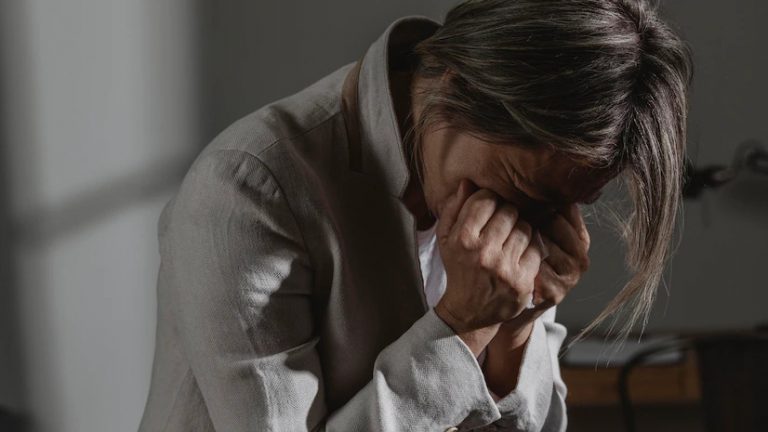If you are looking for help coping with anxiety and depression, you’ve come to the right place. It can be hard to feel like you’ll ever be able to cope with your anxiety and depression, but it’s important not to give up hope.
You can do many different things to help lessen your anxiety or depression symptoms. You may have to try a few other methods before finding the one that makes the most sense for your situation and personality.
Don’t give up even if you don’t feel any better at first. It may take time for anxiety and depression symptoms to ease.
The purpose of this article is to offer hope and reassurance by providing some coping strategies that might be helpful for you.
1. Stop Watching the News
You’re probably aware of the news before you wake up and when you get home from work, but have you ever thought about how this creeping trend can affect your mental health?
While the news isn’t going to kill you, it has been scientifically proven to worsen anxiety and depression and cause symptoms of PTSD.
The American Psychological Association finds that consuming and focusing on negative content for long periods can cause paranoia and fear, often leading to maladaptive behaviors.
Of the 85% of our survey takers who rated themselves as being “affected” by the media at some point in their lives, 69% reduced or changed their behaviors after being impacted by the media.
2. Meditation
Habituation is the process of getting used to one particular thing. The more you habituate to some stimulus, the more your body and mind adapt to it.
Depression and anxiety are some of the most common medical conditions in every country.
According to the journal of the American Medical Association, around 7% of adults in the world have faced depression in their lifetime, and 1 in 6 people will suffer from an anxiety disorder in the United States alone.
Little do we know that meditation techniques can actually be beneficial in treating these medical conditions. Anxiety and depression are major problems globally, however, they can be improved with a simple technique such as meditation.
It has been studied over decades on how it can improve our quality of life, alleviate pain and stress, help us overcome fears and lower our blood pressure. That is why meditation is important for coping with anxiety and depression.
3. Start Cutting Out People That Suck
Do you know that feeling? It’s the one you get when you give someone a second, third and even fourth chance to do what they said they would do. Maybe they did it once; that’s cool. Perhaps they did it twice; still cool.
But when you’ve given them more chances than your fave Netflix series, and they just can’t get it right and still don’t seem to care what they’re doing to you, there’s a problem.
It’s taking up too much of your time and resources to fix something that isn’t broken. You let them back into your life, you let them close to you, and you let yourself trust them again and again.. as a result, it takes its toll on you.
4. Reading
Reading calms us down and provides a sense of relief. This has been proved by scientists who have found that reading helps calm people down and make them less anxious and depressed. Scientists have discovered that reading is a complex process that activates many parts of the brain at the same time.
Research has shown that reading can help people cope with anxiety and depression. Reading is a non-strenuous activity, especially reading a book from an online library without doing too much.
Reading is an activity that can be done alone and allows you to clear your mind and relieve stress.
Reading is an enjoyable activity that can help people cope with different moods, states, and circumstances. For people who are currently experiencing any kind of health problem, there is potential for reading to help them feel better.
5. Talking to Your Friends
“You can’t just keep ignoring it” — many of us with mental illness have heard or said this. It takes a burden off our shoulders to talk to someone who understands, but it also takes energy to find someone who will listen, and then there’s the effort to make sure we get through our entire story.
Taking mental illness out of the closet by helping people with anxiety and depression share their life experiences anonymously
One of the best ways to cope when you’re anxious is to talk about it. However, opening up is difficult because talking is hard when you’re in pain. People with anxiety often turn to their friends when they’re anxious, but talking to your best friend is easy when you’re not anxious. The tricky part is overcoming what holds you back from starting the conversation.
6. Writing
Stress levels in the US are at an all-time high; 66% of Americans report living with extreme stress. Approximately 1 in 5 adults also suffers from anxiety disorders, according to the Anxiety and Depression Association of America.
We’ve seen a correlation between writing and a decrease in anxiety, but what exactly is that correlation, and why?
Researchers at the University of Santa Barbara found that expressive writing can significantly improve one’s mood and overall mental health.
This had been proven through a number of experiments in which participants were asked to write about their feelings for a set amount of time throughout the week, for three to five weeks.
What we found particularly interesting about this study is that participants’ moods improved just from writing about their feelings, even without sending them to anyone.
Even without seeking outside feedback from friends and family, just getting those feelings out on paper proved beneficial.
7. Sleeping Enough
A new study at Boston Children’s Hospital and Harvard Medical School has revealed that insufficient sleep affects the risk of anxiety in adolescents.
The results, published in the journal JAMA Psychiatry, show that participants who slept less than 8.5 hours per day had a 2.5 times greater risk of developing an anxiety disorder compared to those who slept between 8.5 and 9.9 hours per day. The age group analyzed was between 13 and 18 years old.
This study is important for two reasons:
- It demonstrates that sleeping enough is physiologically necessary for proper mental health and well-being, and this is not the first time that a study has underlined the fact that more than 8 hours of sleep per day somehow makes you feel more anxious throughout the day, even if you are getting quality sleep.
- Contrary to popular belief, sleeping less than 6 or 7 hours daily doesn’t necessarily mean you’ll be more productive during the day.
In 2013, the World Health Organization reported that “anxiety disorders are the most common mental illness in the United States. The National Institute of Mental Health states that nearly 18% of people in the U.S. will experience an anxiety disorder at some point in their lives.
Does Therapy Help to Reduce Stress and Anxiety?
Do you think that therapy helps to reduce stress and anxiety? The research generally confirms this idea.
According to David Spiegel, Professor of Psychiatry and Behavioral Sciences at Stanford University School of Medicine and Chief of Psychiatry at the Veterans Affairs Palo Alto Health Care System, “A number of studies strongly suggest that people who get therapy actually do better in life.
They’re happier, they have lower rates of depression, and they’re more successful at work. Many of these studies actually follow people over the long term, sometimes 10 to 15 years. And they find people who get therapy do better in life.
If you are looking for the best therapy online then Book an Appointment at Online-Therapy. They are very cost-effective and in the same way, deliver high-quality therapy services that will help you to live a better life by reducing stress and anxiety.






Thank you, I have recently been looking for information approximately this subject for ages and yours is
the best I have found out till now. But, what about the conclusion? Are
you sure in regards to the source?
Asking questions are really good thing if you are not understanding something completely, but this post presents good understanding even.
I have been exploring for a little for any high quality
articles or weblog posts in this sort of space . Exploring in Yahoo I at
last stumbled upon this site. Reading this information So i am happy to convey that I have an incredibly just
right uncanny feeling I came upon exactly what I needed.
I such a lot indubitably will make sure to don?t overlook this site and
provides it a look on a relentless basis.
Right away I am going away to do my breakfast, afterward having my breakfast coming yet again to read more news.
It’s going to be end of mine day, however before ending I am reading this
wonderful paragraph to improve my experience.
Heya i am for the primary time here. I came
across this board and I find It really helpful &
it helped me out a lot. I hope to offer one thing back and aid others like you aided me.
Interesting blog! Is your theme custom made or did you download it from somewhere?
A theme like yours with a few simple adjustements would
really make my blog shine. Please let me know where you got your design. With thanks
I really love your site.. Excellent colors & theme. Did you build this amazing
site yourself? Please reply back as I’m trying to create my very own site
and would like to know where you got this from or
just what the theme is called. Appreciate it!
I like reading a post that can make people think. Also, thanks for allowing for
me to comment!
울산콜걸
https://blog.naver.com/combine8589/223743339311
https://www.youtube.com/channel/UCeVNIN2PoYFRDmFyYRmK7bQ